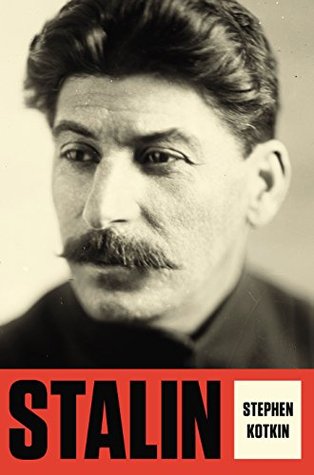More on this book
Community
Kindle Notes & Highlights
Read between
January 1, 2022 - March 31, 2023
But Rykov and others in the politburo had come to see not only a prickly, self-centered, often morose, vindictive person in Stalin, but also an indomitable Communist and leader of inner strength, utterly dedicated to Lenin’s ideas, able to carry the entire apparatus, the country, and the cause of the world revolution on his back.
Additionally, the group arrayed around Stalin was incomparably below him.
Stalin “was incorruptible and irreconcilable in class questions,” Nikita Khrushchev, a rising official in the Ukrainian party apparatus at the time of Stalin’s trip to Siberia, would recall. “It was one of his strongest qualities, and he was greatly respected for it.”
ULTIMATELY, the principal alternative to Stalin was the willing abandonment or unwilling unhinging of the Bolshevik regime—which Stalin himself almost caused, and not just because of collectivization.
Authoritarian rulers the world over were almost never so bold as to stand up to the great powers, putting their personal regimes at risk. They pursued private gain, appointed relatives and cronies, gathered harems, delivered Populist speeches in public about defending the interests of the patria, then sold out their countries to the Europeans or gringos for the enrichment of themselves and their entourages. This was the typical story of Latin American caudillos, for example.
But although he had tried to cut a deal with France by recognizing tsarist debts, Stalin detested the prospect of becoming dependent on foreign bankers, or conceding changes in Soviet domestic political arrangements.
But going it alone was a delusion: the Red Army could be crushed by superior technology.
Had Stalin not only caused the mass loss of the country’s most productive farmers and half its livestock in collectivization but also failed to finagle the machinery necessary for Soviet industrialization, including tractors for agriculture, his rule would have risked the destruction of the Leninist revolution. But a fortuitous event rescued his reckless gambling. On September 4, 1929, stock prices began to fall in New York and on October 29 the market crashed.
The world’s misfortune was Stalin’s great, unforeseen fortune.
The Depression afforded Stalin unprecedented leverage: suddenly, the capitalists needed the Soviet market as much as the Soviets needed their advanced technology.
Because of the Great Depression, we forget just how wild was Stalin’s gamble—as great or greater than Lenin’s October coup, Brest-Litovsk, and the NEP.
More broadly, in Soviet society disappointment had become pervasive over the failures of the revolution to deliver abundance and social justice.
That all this upheaval, from the countryside to the mines and factories, was going to work out in Stalin’s favor, however, was hardly guaranteed. He put everything on the line, including his personal power.
To be sure, his intense relationship with the daring Lado Ketskhoveli, and the latter’s early death at the hands of tsarist jailers, made a lasting impression on him, helping to solidify his lifelong Marxist convictions.
In other words, Stalin’s marked personal traits, which colored his momentous political decisions, emerged as a result of politics.
All non-Leninist socialists eventually discovered that if they wanted genuine democracy, they had to abandon Marx’s summons to negate and transcend capitalism and markets.
But by 1928, immediately upon Trotsky’s deportation to Kazakhstan, Stalin acted upon his long-standing leftist core convictions because, like Lenin in 1921, when the NEP had been introduced, Stalin felt the survival of the revolution was at stake, and that he had the political room to act.
Trotsky was just not the leader people thought he was, or that Stalin turned out to be.
More than that, Trotsky had never been an indefatigable, nitty-gritty administrator or a strategist capable of ruthlessly opportunistic improvisation.
If Stalin had died, the likelihood of forced wholesale collectivization—the only kind—would have been near zero, and the likelihood that the Soviet regime would have been transformed into something else or fallen apart would have been high.
History, for better and for worse, is made by those who never give up.


